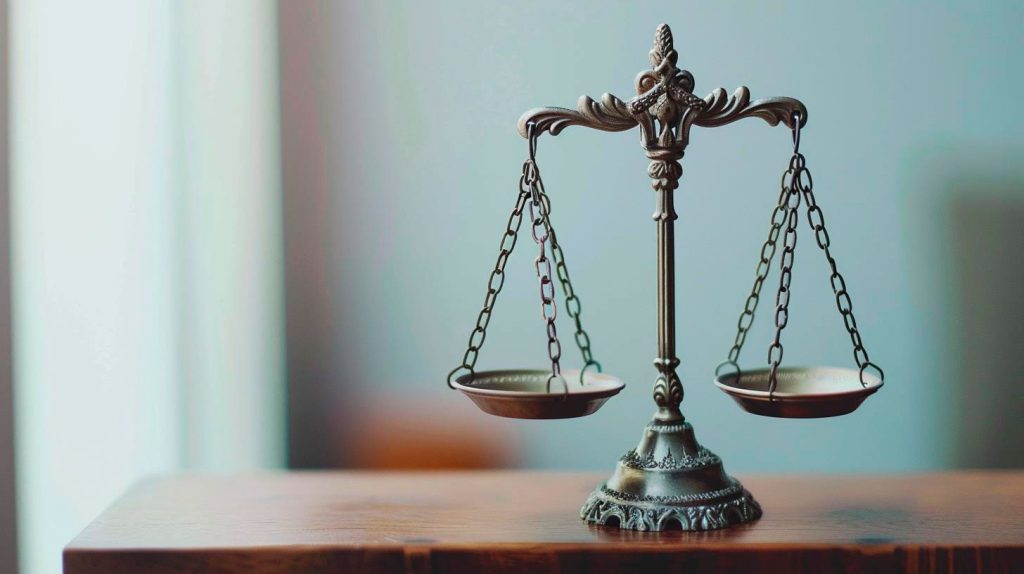
Seeking Professional Financial Guidance to Navigate Credit Score Ramifications of Bankruptcy After Divorce
However, it is essential to understand the credit score ramifications of bankruptcy after divorce and seek professional financial guidance to navigate this complex process.
According to a recent study by the American Bankruptcy Institute, divorce is one of the leading causes of bankruptcy in the United States. The financial implications of divorce can be overwhelming, with issues such as division of assets, alimony, and child support adding to the already high financial burden. As a result, many individuals find themselves in a position where filing for bankruptcy is the best option to start fresh financially.
Credit Score Ramifications of Bankruptcy After Divorce
One of the biggest concerns for individuals considering bankruptcy after divorce is the impact it will have on their credit score. Bankruptcy can stay on your credit report for up to 10 years, making it challenging to obtain new lines of credit or loans during this period. However, it is important to note that bankruptcy is not the end of your financial journey. With proper financial planning and guidance, you can slowly rebuild your credit score over time.
Seeking professional financial guidance is crucial in navigating the credit score ramifications of bankruptcy after divorce. A qualified financial advisor or bankruptcy attorney can help you understand the impact of bankruptcy on your credit score and develop a plan to rebuild it. They can also provide valuable insights on managing your finances post-bankruptcy and help you make informed decisions to improve your financial health.
Benefits of Seeking Professional Financial Guidance
There are several benefits to seeking professional financial guidance when dealing with the credit score ramifications of bankruptcy after divorce. First and foremost, a financial advisor or bankruptcy attorney can provide you with personalized guidance tailored to your specific financial situation. They can help you identify the best course of action to rebuild your credit score and regain financial stability.
In addition, professional financial guidance can help alleviate the stress and confusion that often comes with navigating the complexities of bankruptcy and credit score management. By working with a knowledgeable expert, you can feel confident that you are making informed decisions about your financial future.
Rebuilding Your Credit After Bankruptcy
Rebuilding your credit after bankruptcy is a gradual process that requires patience and discipline. By following a few key steps, you can begin to improve your credit score over time. These steps may include:
- Obtaining a secured credit card to start rebuilding your credit
- Making timely payments on all existing debts
- Monitoring your credit report regularly for errors or inaccuracies
- Creating a budget and sticking to it to manage your finances effectively
It is important to remember that rebuilding your credit after bankruptcy takes time and persistence. By following the guidance of a financial advisor or bankruptcy attorney, you can take the necessary steps to improve your credit score and work towards a better financial future.
Bankruptcy after divorce can have a significant impact on your credit score and financial well-being. However, with the right professional guidance and a solid financial plan, you can navigate this challenging period and rebuild your credit over time. Seeking the help of a qualified financial advisor or bankruptcy attorney is crucial in developing a strategy to improve your credit score and regain financial stability. Remember that bankruptcy is not the end of your financial journey – with dedication and the right guidance, you can work towards a brighter financial future.
Strategies for Rebuilding Credit After Bankruptcy Following a Divorce
Rebuilding your credit after bankruptcy is possible, and there are strategies you can use to help improve your credit over time. In this article, we will discuss some effective strategies for rebuilding credit after bankruptcy following a divorce.
Understand the Impact of Bankruptcy on Your Credit Score
Bankruptcy can have a significant negative impact on your credit score, making it more difficult to access credit in the future. It is important to understand how bankruptcy affects your credit score so that you can take steps to rebuild it. In general, a bankruptcy can stay on your credit report for up to ten years, but its impact lessens over time.
One of the first steps to rebuilding your credit after bankruptcy is to obtain a copy of your credit report from all three major credit bureaus – Equifax, Experian, and TransUnion. Review your credit reports carefully to ensure that all information is accurate and up to date. Dispute any errors or inaccuracies on your credit report to have them corrected.
Create a Budget and Stick to It
Creating a budget is an essential step in rebuilding your credit after bankruptcy. Start by tracking your income and expenses to get a clear picture of your financial situation. Identify areas where you can cut back on spending and create a budget that allows you to meet your financial obligations while saving money for emergencies.
Sticking to your budget is key to rebuilding your credit. Make sure to pay all of your bills on time, as on-time payments are one of the most important factors that affect your credit score. Consider setting up automatic payments for your bills to ensure that you never miss a payment.
Apply for a Secured Credit Card
One of the best ways to rebuild your credit after bankruptcy is to apply for a secured credit card. A secured credit card requires you to make a security deposit, which serves as collateral for the credit limit on the card. Using a secured credit card responsibly can help you establish a positive payment history and improve your credit score over time.
Make small purchases with your secured credit card and pay off the balance in full each month to avoid paying interest. Keep your credit utilization low, ideally below 30% of your credit limit, to demonstrate responsible credit management.
Monitor Your Credit Score Regularly
Monitoring your credit score regularly is essential when rebuilding your credit after bankruptcy. By keeping track of your credit score, you can see how your financial habits are affecting your credit over time. You can also identify any potential issues with your credit report and take steps to address them promptly.
There are many free credit monitoring services available that allow you to track changes to your credit score and receive alerts about any significant changes. Take advantage of these services to stay informed about your credit status and make improvements as needed.
Seek Professional Help if Needed
If you are struggling to rebuild your credit after bankruptcy following a divorce, consider seeking professional help. A credit counselor or financial advisor can provide personalized guidance on how to improve your credit score and manage your finances effectively. They can help you develop a plan to rebuild your credit and achieve your financial goals.
Additionally, if you are facing challenges with debt repayment, a bankruptcy attorney can provide legal advice on how to navigate the bankruptcy process and protect your rights. They can help you understand your options for resolving your debts and rebuilding your credit after bankruptcy.
Rebuilding your credit after bankruptcy following a divorce is a challenging process, but it is possible with time and effort. By understanding the impact of bankruptcy on your credit score, creating a budget, applying for a secured credit card, monitoring your credit score regularly, and seeking professional help if needed, you can take steps to improve your credit over time. Remember that rebuilding your credit is a marathon, not a sprint, so be patient and persistent in your efforts to improve your credit score.
Understanding the Impact of Bankruptcy on Credit Scores During Divorce Proceedings
The Role of Bankruptcy in Divorce Proceedings
Bankruptcy is a legal process that allows individuals to discharge or reorganize their debts in order to get a fresh start financially. When a couple is going through a divorce, bankruptcy can play a key role in determining how their debts will be divided and discharged. In some cases, one or both spouses may choose to file for bankruptcy as part of the divorce process in order to address outstanding debts.
It is important to note that bankruptcy can have varying effects on each individual’s credit score, depending on the type of bankruptcy filed and other factors. Chapter 7 bankruptcy, for example, typically stays on a credit report for up to 10 years, while Chapter 13 bankruptcy stays on a credit report for up to 7 years. Both types of bankruptcy can have a negative impact on a person’s credit score, making it more difficult to secure loans or credit in the future.
The Impact of Bankruptcy on Credit Scores
Bankruptcy can have a significant impact on an individual’s credit score, potentially lowering it by hundreds of points. According to a study by the Federal Reserve, individuals who file for bankruptcy can see their credit scores drop by an average of 200 points or more. This can make it difficult to qualify for loans, credit cards, or even rent an apartment.
Additionally, bankruptcy can make it more challenging to rebuild credit after the bankruptcy process is completed. Lenders may be wary of extending credit to individuals with a bankruptcy on their credit report, and those who are approved for credit may face higher interest rates and less favorable terms.
Strategies for Rebuilding Credit After Bankruptcy
While bankruptcy can have a negative impact on credit scores, there are steps that individuals can take to start rebuilding their credit after the process is complete. One key strategy is to consistently make on-time payments on any remaining debts, such as a mortgage or car loan. Making timely payments can demonstrate to lenders that an individual is financially responsible and can help improve their credit score over time.
Another strategy for rebuilding credit after bankruptcy is to apply for a secured credit card. Secured credit cards require individuals to make a security deposit that serves as collateral for the credit line, making them easier to qualify for than traditional credit cards. By using a secured credit card responsibly and paying off the balance in full each month, individuals can start to build a positive credit history.
Impact of Joint Accounts and Shared Debts on Credit Scores Post-Divorce Bankruptcy
Understanding the impact of these financial obligations is crucial for ensuring a smooth transition to financial independence after a divorce.
Joint Accounts
Joint accounts are financial accounts that are held by two or more individuals, such as spouses. These accounts typically include checking accounts, savings accounts, and credit cards. When couples decide to divorce, they must come to an agreement on how to handle joint accounts to prevent negative effects on their credit scores. Closing joint accounts is often the best solution to avoid any future financial entanglement.
However, if one party is unable to pay off their share of the debt on a joint account, it can negatively impact the credit scores of both parties. Even if the divorce decree assigns responsibility for the debt to one party, if the debt is not paid as agreed, it can still show up on both credit reports. This is why it’s important for divorcing couples to work together to close joint accounts and pay off any outstanding balances to protect their credit scores.
Shared Debts
Shared debts, such as mortgages, car loans, and personal loans, are another common financial issue that couples face during divorce. When couples divorce, they must divide shared debts and come to an agreement on who will be responsible for paying them off. However, even if one party agrees to take on a shared debt, if they fail to make payments, it can still negatively impact the credit scores of both parties.
Divorcing couples should work together to create a plan for paying off shared debts after the divorce is finalized. This may involve selling assets, refinancing loans, or negotiating with creditors to modify payment terms. By proactively addressing shared debts, couples can prevent negative effects on their credit scores and move forward with their financial independence.
Protecting Your Credit Score Post-Divorce Bankruptcy
After a divorce, it’s important to monitor your credit report regularly to ensure that joint accounts and shared debts are being handled appropriately. By keeping a close eye on your credit score, you can identify any potential issues and take action to protect your financial well-being.
If you are facing financial difficulties post-divorce, consider seeking the advice of a qualified bankruptcy attorney. A bankruptcy filing can help you eliminate or restructure your debts, providing a fresh start for your financial future. However, it’s crucial to understand how joint accounts and shared debts can impact your credit score during the bankruptcy process.
Divorce can be a difficult and stressful experience, especially when it comes to finances. Understanding how joint accounts and shared debts can affect your credit score post-divorce bankruptcy is essential for navigating this challenging time. By taking proactive steps to close joint accounts, pay off shared debts, and monitor your credit report, you can protect your financial well-being and move forward with confidence.
Remember, seeking the guidance of a qualified bankruptcy attorney can provide you with the support and expertise you need to make informed decisions about your financial future. Don’t let the financial implications of divorce hold you back – take control of your finances and start fresh today.













Yo, I’m shook. I didn’t even consider the credit score implications of filing for bankruptcy after a divorce. How long does that stay on your credit report?
This is all so confusing. Can someone break it down for me – what are the specific ways that bankruptcy after divorce can impact your credit score in the long term?
So, can filing for bankruptcy after divorce impact your ability to rent an apartment or get a job? Like, is there any way to recover from that?
Dang, I’m learning so much about the credit score ramifications of bankruptcy filings after divorce. Can you explain how that affects your ability to get loans or credit cards?
I’m freaking out, guys. Does filing for bankruptcy after a divorce mean you won’t be able to get a mortgage or a car loan? How does that work?
Oh man, for real? I didn’t know that getting divorced could mess with your credit score like that. That’s wild. What can you do to protect your credit if you’re going through a divorce?
Wait, so how bad does filing for bankruptcy after a divorce affect your credit score? Like, am I gonna be screwed for years to come?
Hey y’all, so I heard that filing for bankruptcy after a divorce can majorly mess up your credit score. Is that true? Can you bounce back from that?
Omg, I had no idea that bankruptcy after divorce could wreck your credit score like that. Is there any way to avoid that outcome?
I’ve always heard that bankruptcy can mess up your credit score, but I didn’t know that the timing after a divorce could make it worse. Can you explain why that happens?